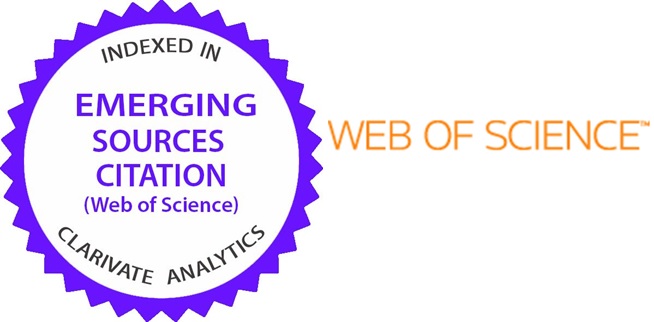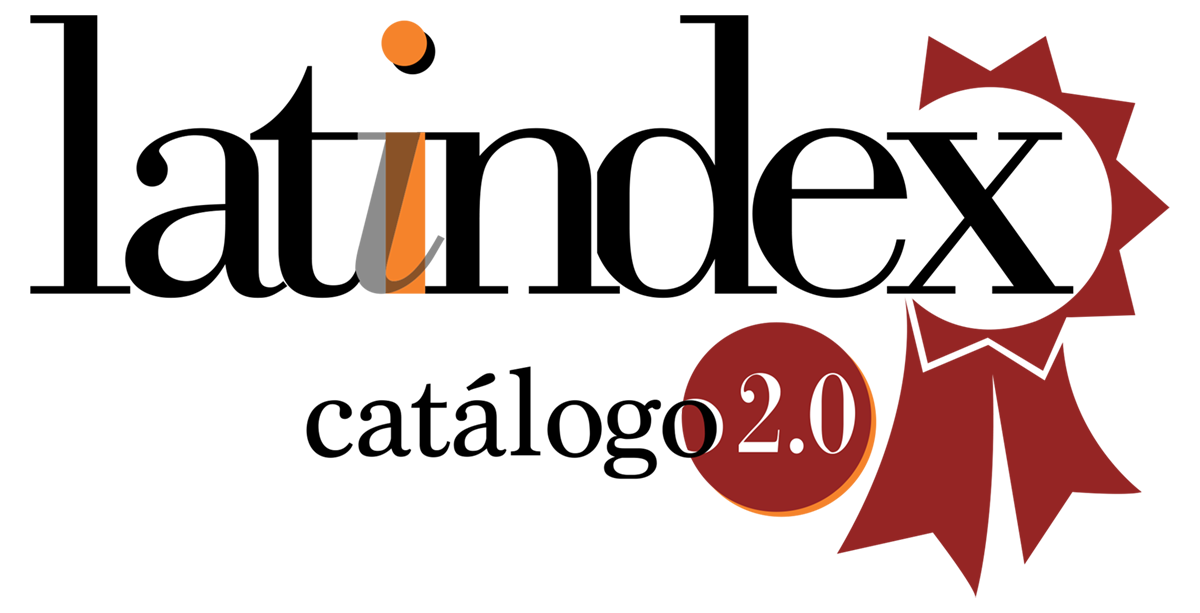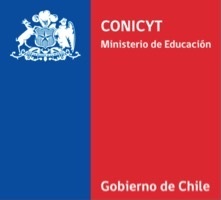Editorial Politics
EDITORIAL PUBLISHING POLICY
Arquitecturas del Sur adheres to the PKP (Public Knowledge Project), and is thus based on the principle of knowledge as a common good. Therefore, it provides the global community with open, free, and immediate access to its content and the results of public research.
Arquitecturas del Sur is an open access journal, which means that all content is freely available at no charge to the user or institutions.
Arquitecturas del Sur is committed to complying with and respecting the rules of ethical behavior in all stages of the scientific publication process.
1. Publication in Arquitecturas del Sur
Original, unpublished texts may be submitted in Spanish, Portuguese, or English. AS publishes the article in its original language, translating it to a second language, be this English or Spanish. Manuscripts may only be submitted via the online platform and according to the format in the Guidelines for Authors. Each submission must have the following sections: Introduction, Theoretical Framework, Case Study (where this applies, Methodology, Development, Conclusions, and Bibliographical References, following the rules outlined in the Guidelines for Authors. Lack of compliance with these editorial norms implies the automatic rejection of the article.
Arquitecturas del Sur continuously receives manuscripts through its online platform, that may be published in one of the issues currently being processed.
Articles will only be received through the online platform. Submission of a manuscript for publication in Arquitecturas del Sur must comply with the following:
- The article is original and unpublished and is the result of research.
- The article has not been published previously. It is neither a fragmented, duplicated, or redundant publication nor submitted simultaneously to another journal or other editorial body (or an explanation has been provided in the Comments to the Editor section).
- The article and attached material comply with ethical principles, current copyright laws, and the stylistic and bibliographic requirements summarized in the Guidelines for Authors, available in the section About Submissions.
- The submission omits all references to the authors' identities in the text; author names, affiliations, and respective ORCID IDs must only be given on the journal´s online platform and in the Proof of Authorship.
- The article has an Introduction, Theoretical Framework, Case Study (where applicable), Methodology, Development, Conclusions, and Bibliographical References. It also includes its graphic material (figures and/or tables) in independent files, as described in the Guidelines for Authors.
- The article meets the requirements established in the Citations and Bibliographic References section of the Guidelines for Authors, following APA 7 standards.
- The article does not present a professional or personal, past or present conflict of interest. If one exists, the possible relationships that may bias the research must be expressly indicated and clarified in the submitted article.
- All the figures have a caption and indicate their sources, whether they are from open format files, were created by the authors, or the authors of this article have permission from the original authors to be used.
- The authors accept that the receipt of the article by the Editorial does not mean it will be published.
2. Editorial review process in Arquitecturas del Sur
Submitted articles must omit all references to the authors' identities and possible funding sources. Arquitecturas del Sur guarantees that all reviews will be objective and that articles will be treated confidentially.
Once the article has been submitted through the Arquitecturas del Sur platform, there are two review stages: editorial and double-blind peer review. The first is a preliminary review by the Editorial Team that checks for compliance with the Guidelines for Authors, the article´s relevance to the journal's focus, and a solid scientific quality and rigor foundation. A plagiarism check will also be performed using Turnitin-iThenticate software. Once the article´s suitability has been established, it will be subjected to double-blind peer review. The panel of experts comprises domestic and international researchers, 80% of whom are external to the editorial entity. To ensure the objectivity of the reviews, reviewers must not present any type of conflict of interest regarding the research, the authors and/or the funder of the research presented in the submission. The revisors will conduct the review following Arquitecturas del Sur’s Peer Review Guidelines (download guidelines) and will recommend one of the following:
- PUBLISHABLE (Accepted for publication with mandatory changes at the editor's suggestion)
- PUBLISHABLE WITH MODIFICATIONS (mandatory changes from the revisors and editors)
- NOT PUBLISHABLE (rejected)
If the revisors differ in their recommendations, the article will be sent to a third revisor.
If the peer review process evaluates the article as PUBLISHABLE WITH MODIFICATIONS, the Editorial Team may deem a second peer-review round necessary. If minor revisions are requested, a second round is not needed, and the Editorial Team will verify that the required suggestions have been made. In both cases, the Editorial Team will set a deadline for the corrections. If, after the second round, the revisors once again request significant revisions, the article will be rejected.
The final decision on an article's publication is the exclusive responsibility of the Arquitecturas del Sur Editorial Team. It is not subject to appeal and will be communicated to authors through the online platform.
3. Open Access Policy.
Arquitecturas del Sur publishes the post-print version of articles in its open-access institutional repository.
Arquitecturas del Sur authorizes authors to disseminate a copy of the published text through their web pages or any open-access repository, together with a mandatory full citation of the text, including the year, full title, name of Arquitecturas del Sur, issue, and page numbers on which the article was published, and the DOI and/or link to the article on the Arquitecturas del Sur website.
4. Archiving
Arquitecturas del Sur uses the LOCKSS program, an archiving system distributed among participating libraries that permits those libraries to create permanent archives of the journal for conservation and restoration purposes. More...
The journal includes the bibliography cited in each article as an exportable field in Dublin Core format following the OAI-PMH protocol.
The journal conducts plagiarism checks using the software Turnitin-iThenticate, which may result in the article's rejection or halt its progress through the editorial process.
5. Copyright and licenses.
The content of the articles published in each issue of Arquitecturas del Sur is the sole responsibility of the authors. It does not necessarily represent the opinion of the University of the Bío-Bío. The authors will maintain their copyright. However, they will guarantee the right to first publication and dissemination of their work to the journal. The publication of the article in Arquitecturas del Sur will be subject to the Creative Commons Attribution- International license (CC BY-SA), that allows others to share, copy, transform, or create new material from this work for commercial purposes as long as they recognize the authorship and first publication in this journal by citing them correctly, and their new contributions are under a license with the same terms. The authors can promote, disseminate, and publish the Arquitecturas del Sur PDF version of their works in institutional repositories.
PUBLICATION ETHICS POLICY
Arquitecturas del Sur adheres to the Committee on Publication Ethics (COPE) code of ethics and establishes:
1. Author´s rights and responsibilities
Upon submitting a manuscript for publication, the authors must complete and attach the Certificate of Originality, where they responsibly declare that:
- All authors have contributed significantly to the article's research and/or writing, and they have identified this through CRediT.
- The research data is original, the property of the authors, and authentic.
- By applying through the Arquitecturas del Sur online platform, they agree to the review process that involves the transfer of rights for the public presentation of their manuscript, its dissemination and use through Open Journal Systems, the online consultation of its content and extract, and its printing on paper and/or downloading and archiving—all this in the specified terms and conditions—on the platforms where the text is hosted.
After the peer review rounds:
- The authors should incorporate the suggestions (if any) or argue for their rejection within the period set by the editors.
- During the editorial process, and whenever requested, the authors should incorporate the fundamental and formatting corrections required by the Editorial Team.
- During the editorial process, the authors have the right to withdraw their article by notifying the Editorial Team and justifying this decision through comments on their article in the OJS.
- After the style correction process, the authors have the right to review the latest version of the text before its final publication. Once approved, this version will continue to the layout and publication stages, and no further changes may be made.
- All authors mentioned in the article submission must have contributed significantly to the research and have a personal ORCID iD.
2. Editorial responsibilities
- The Editorial Team will consider all manuscripts received through its online platform for possible publication. Following the peer review results, the decision will be based on compliance with the editorial policies and the article’s scientific contributions.
- Arquitecturas del Sur reserves the right to accept or reject a manuscript if it is not in line with the purpose and focus of the journal.
- The Editorial Team will preserve revisor anonymity and maintain the publication's scientific character.
- The Editorial Team must be free of possible conflicts of interest regarding the submitted articles, their authors, and their funding institutions.
- The Editorial Team will select expert revisors specific to each manuscript´s area and maintain author and revisor anonymity and the academic and scientific character of the publication at all times.
- The Editorial Team will stay in contact with authors and external revisors and clarify any questions that may arise during the editorial process.
- Arquitecturas del Sur has the authority to accept or reject a manuscript. The reasons for this decision may be any of the following:
- The article does not fit the journal´s general focus.
- The article does not comply with the Editorial Policies and/or the Guidelines for Authors.
- The article does not meet a minimum scientific quality and/or rigor standard.
- The article is evaluated negatively in the peer review process.
- Revisor suggestions and/or requests made by the Editorial Team are not incorporated or not by the established deadlines.
- Major revisions are requested in the second round of peer review.
- Arquitecturas del Sur will disclose corrections, clarifications, retractions, and/or apologies when it makes verifiable errors in the editorial process.
- The Editorial Team must not have any conflicts of interest regarding submitted articles and will ensure that revisors also do not do so regarding the research they evaluate.
- Arquitecturas del Sur ensures that the articles it publishes meet the ethical criteria for scientific publications set by the Committee on Publication Ethics (COPE) and opposes academic plagiarism. It, therefore, rejects any article with fraudulent data, compromised originality, or duplicate submissions. Detecting any of these practices will result in the rejection or immediate retraction of the article.
3. Editorial responsibilities
- Reviewers will inform the Editorial Team of potential conflicts of interest.
- Revisors may decline a request to review a manuscript they consider outside their expertise, experience, and/or knowledge of the article’s specific subject.
- Revisors will objectively analyze the manuscripts they review, substantiate their observations, and comply with the deadlines requested by the Editorial Team.
- During the editorial process, and even once the manuscript is accepted for publication, revisors pledge to preserve the manuscript´s confidentiality and not to disseminate or use its content.












 Programa de Información Científica/Concurso Fondos de Publicación de Revistas Científicas 2018/ Proyecto Mejoramiento de Visibilidad de Revistas UBB (Código:FP180007)
Programa de Información Científica/Concurso Fondos de Publicación de Revistas Científicas 2018/ Proyecto Mejoramiento de Visibilidad de Revistas UBB (Código:FP180007) 
